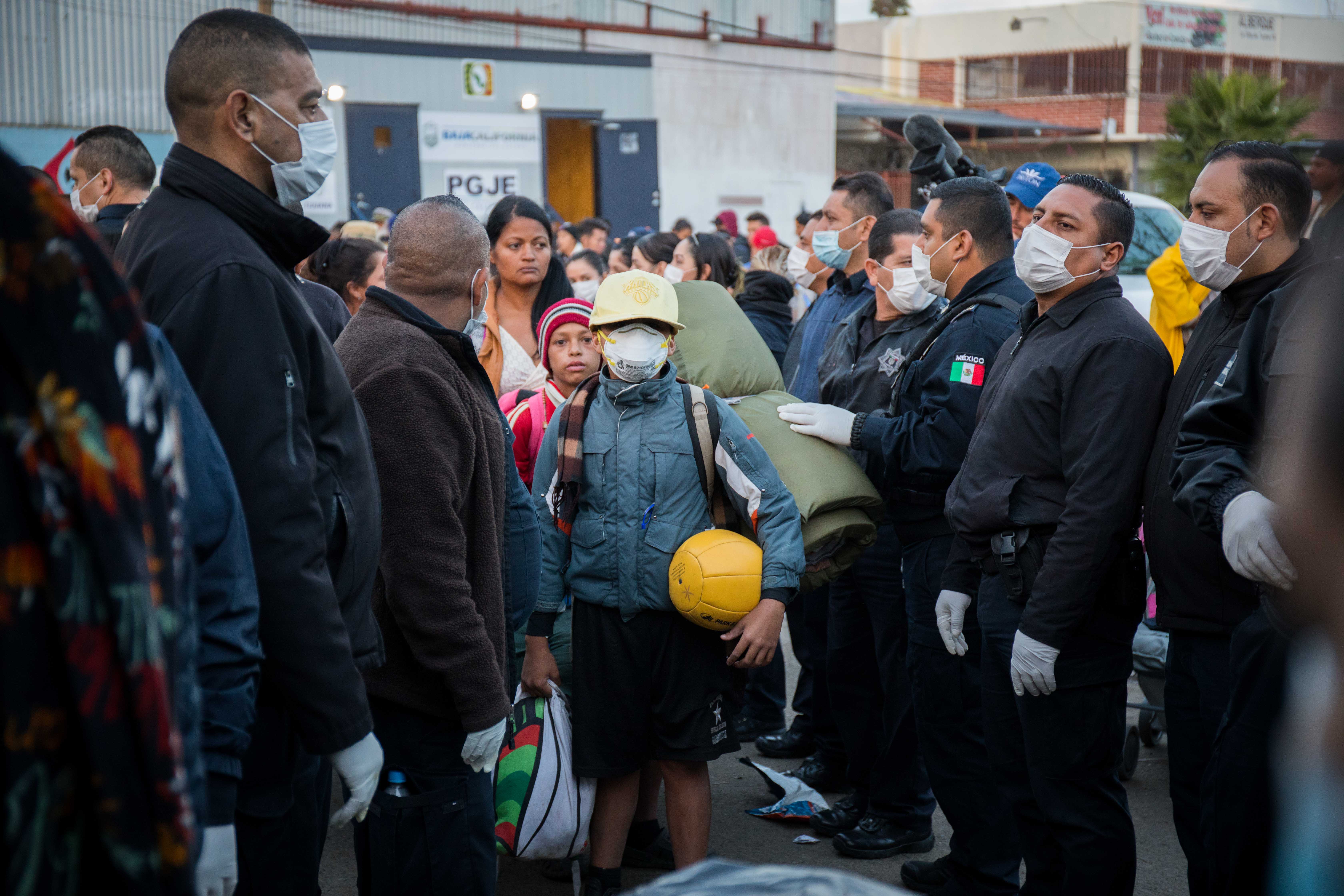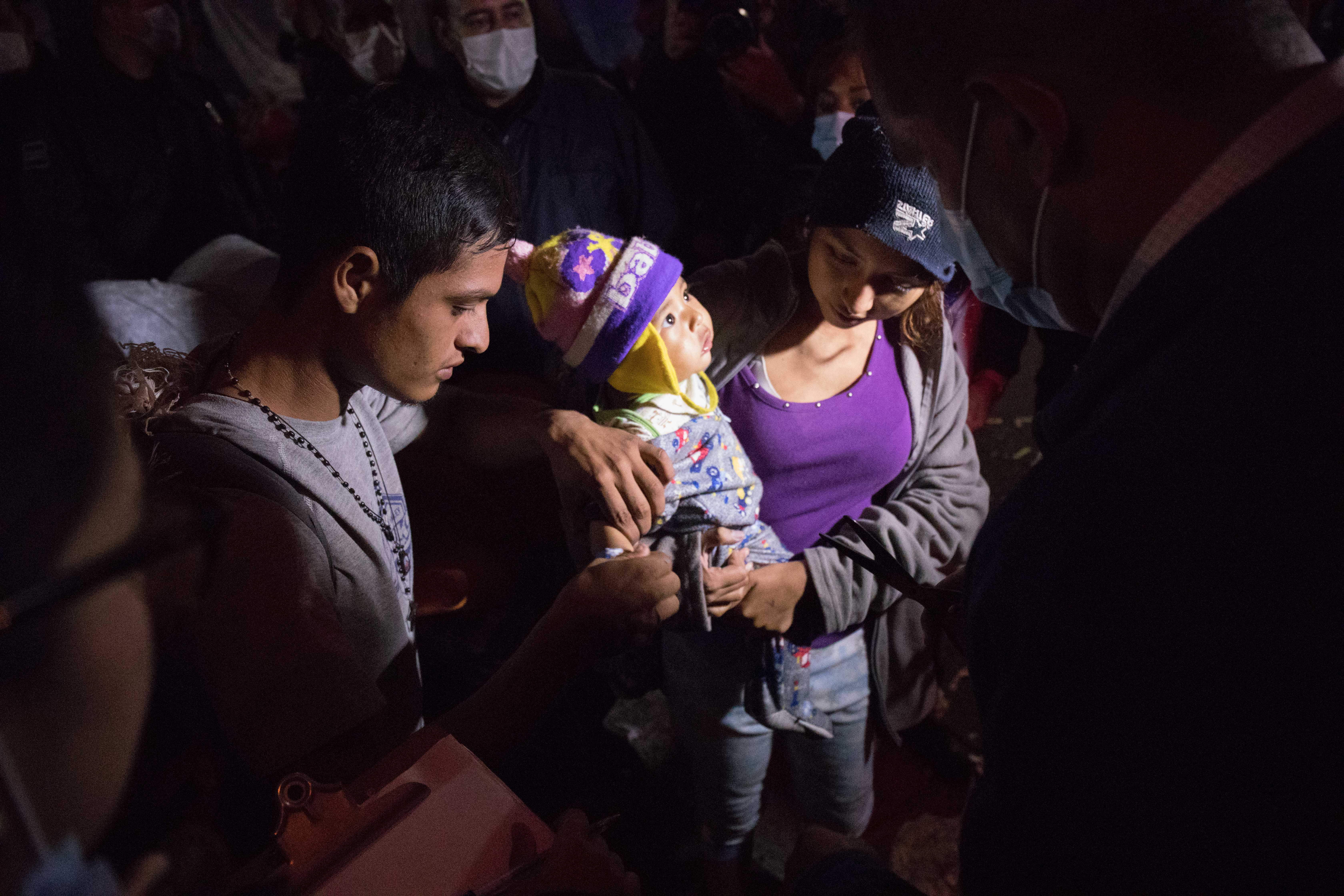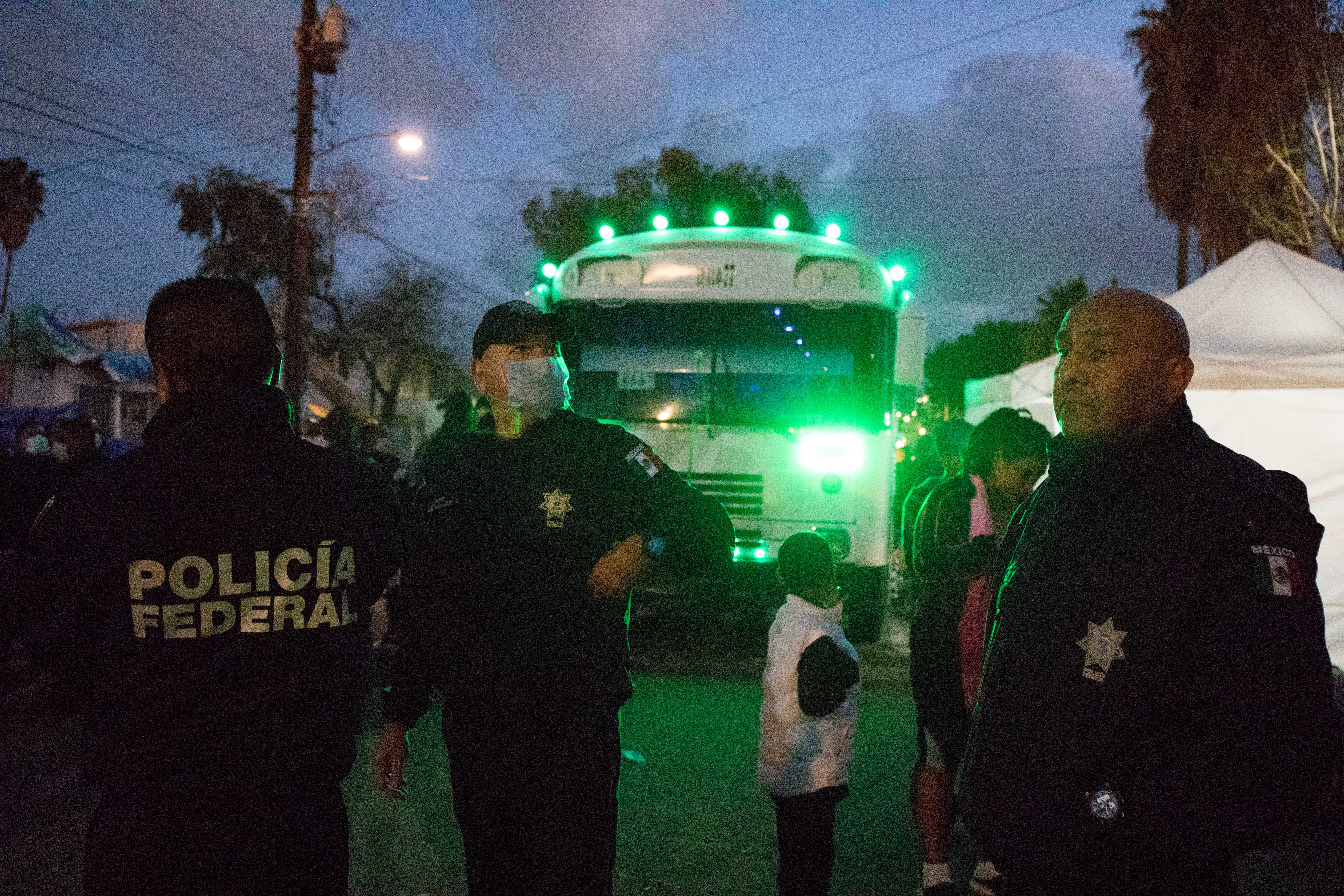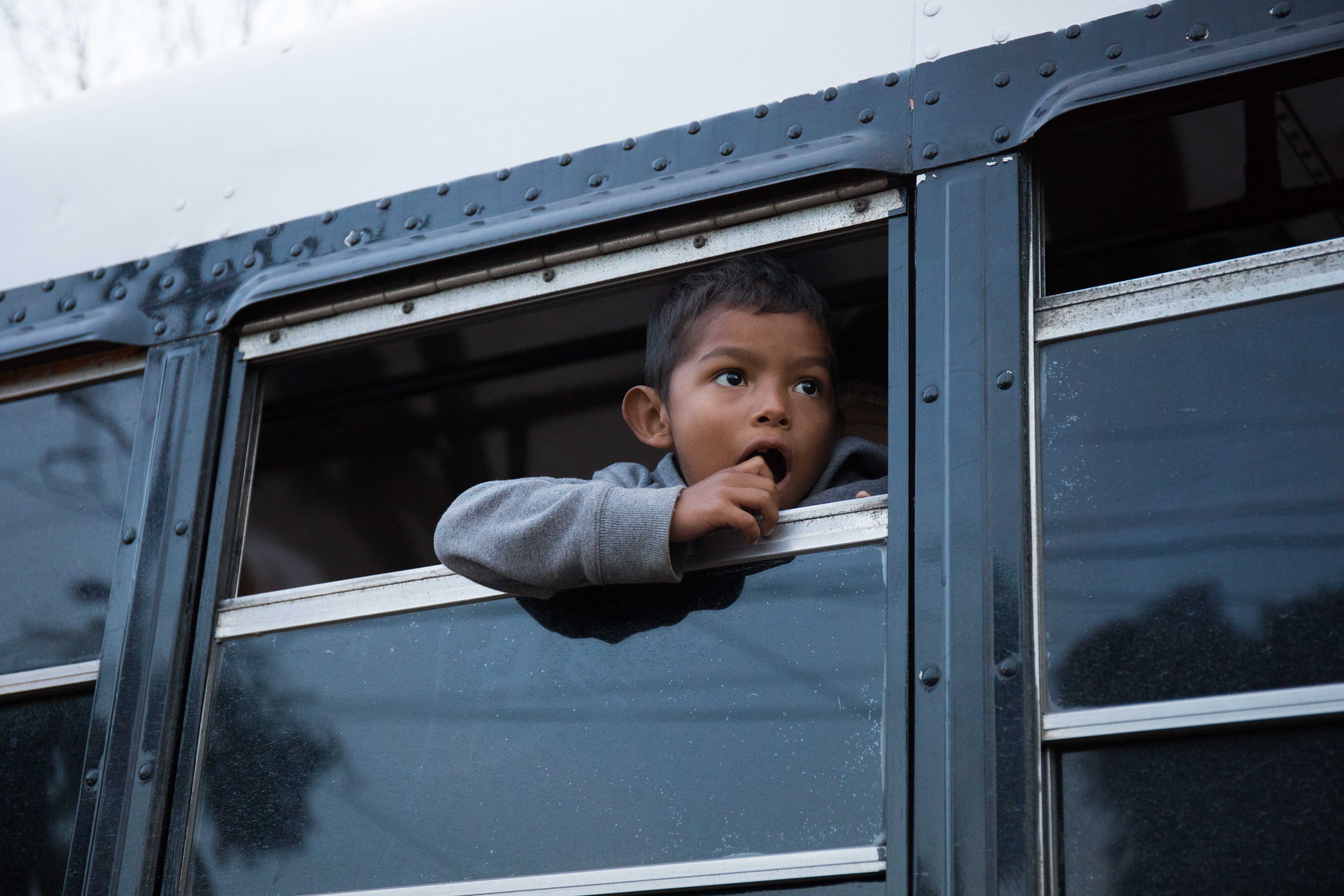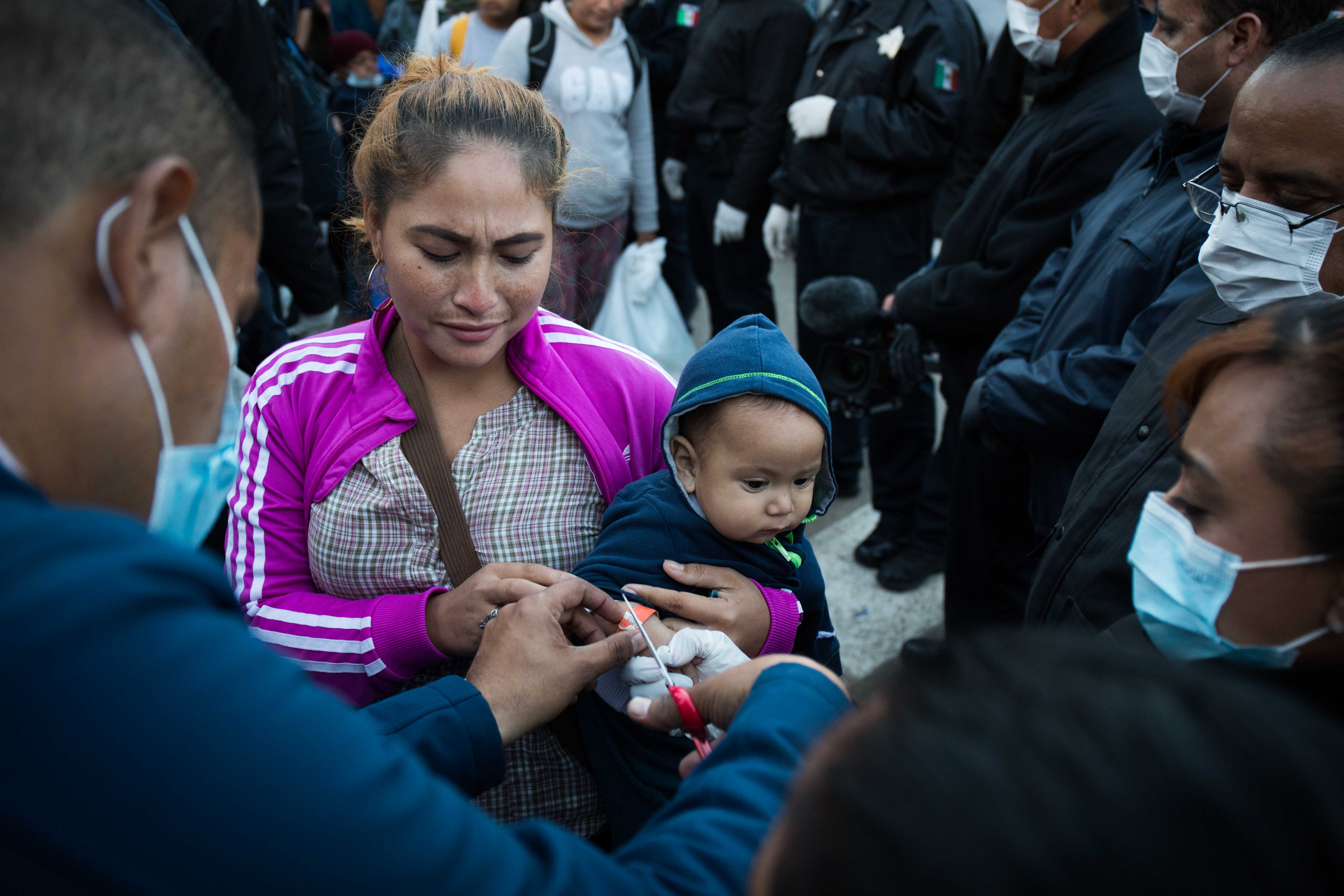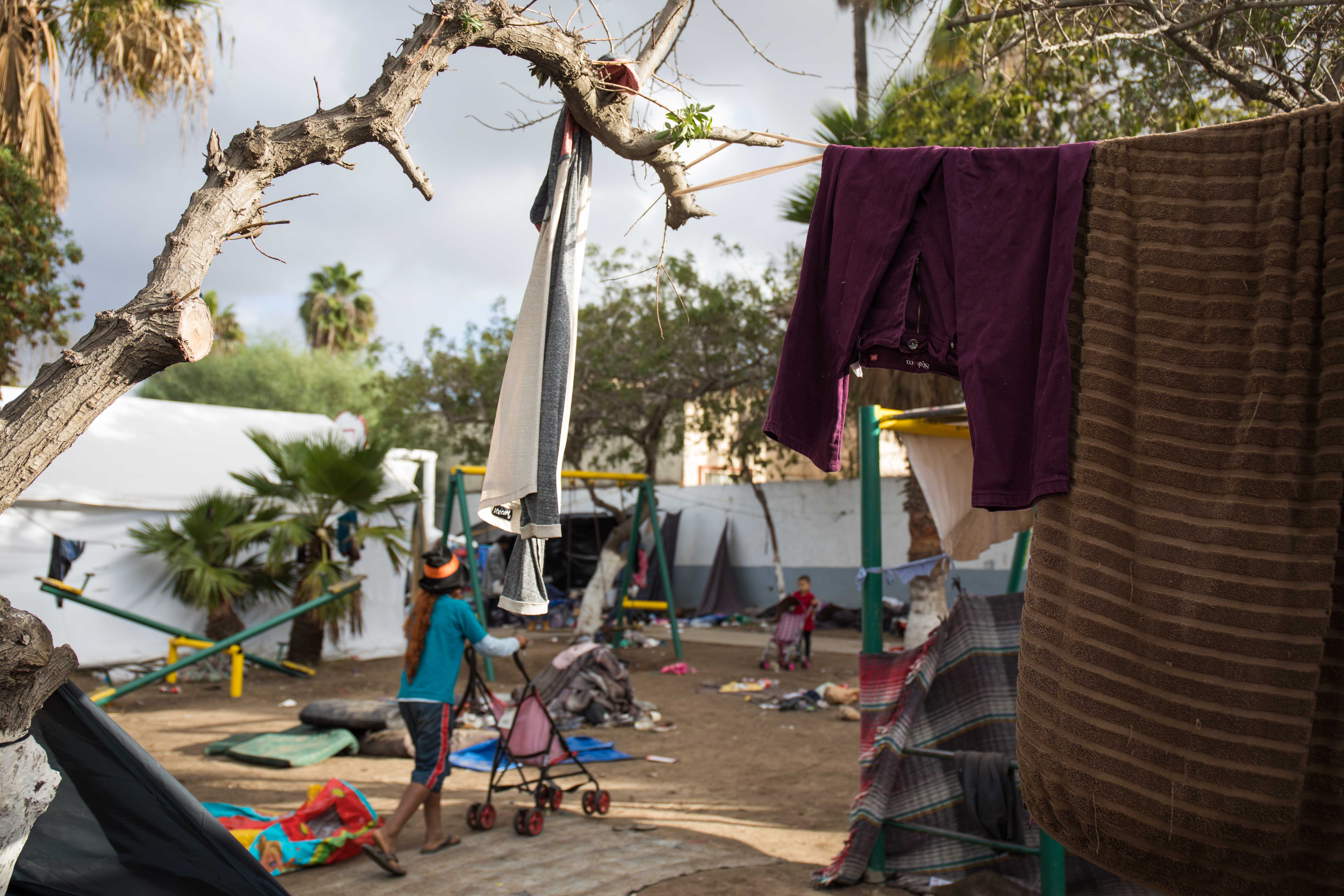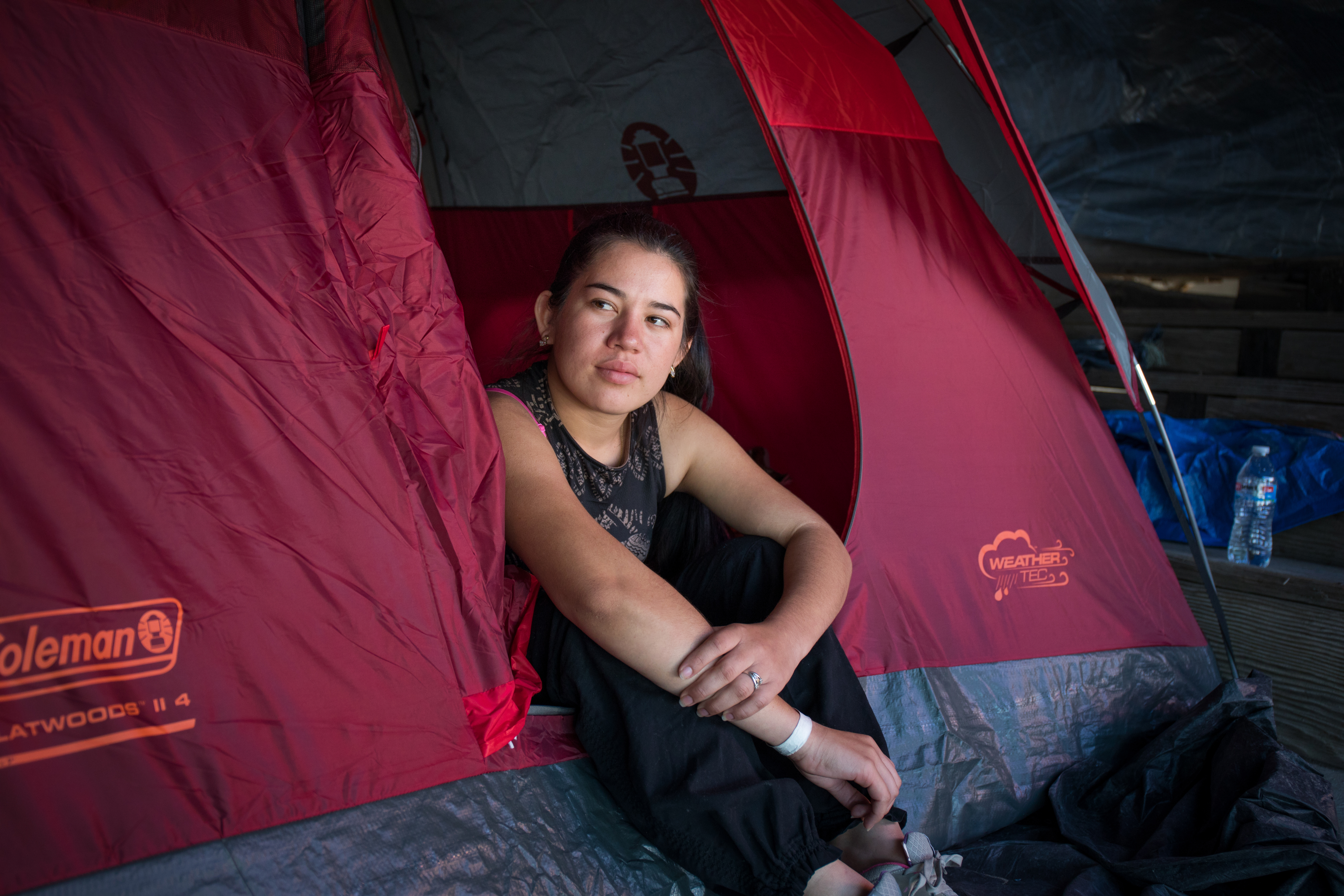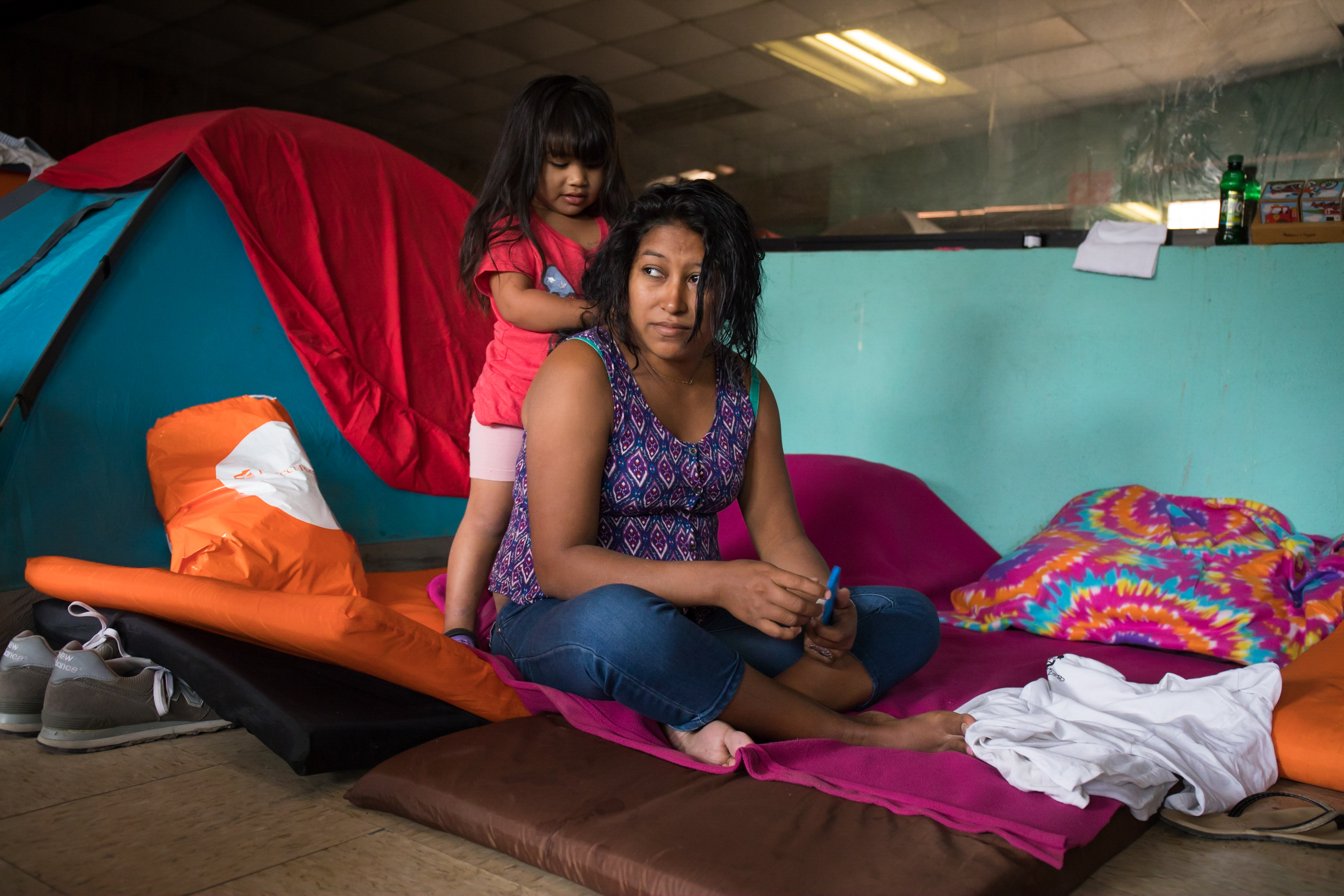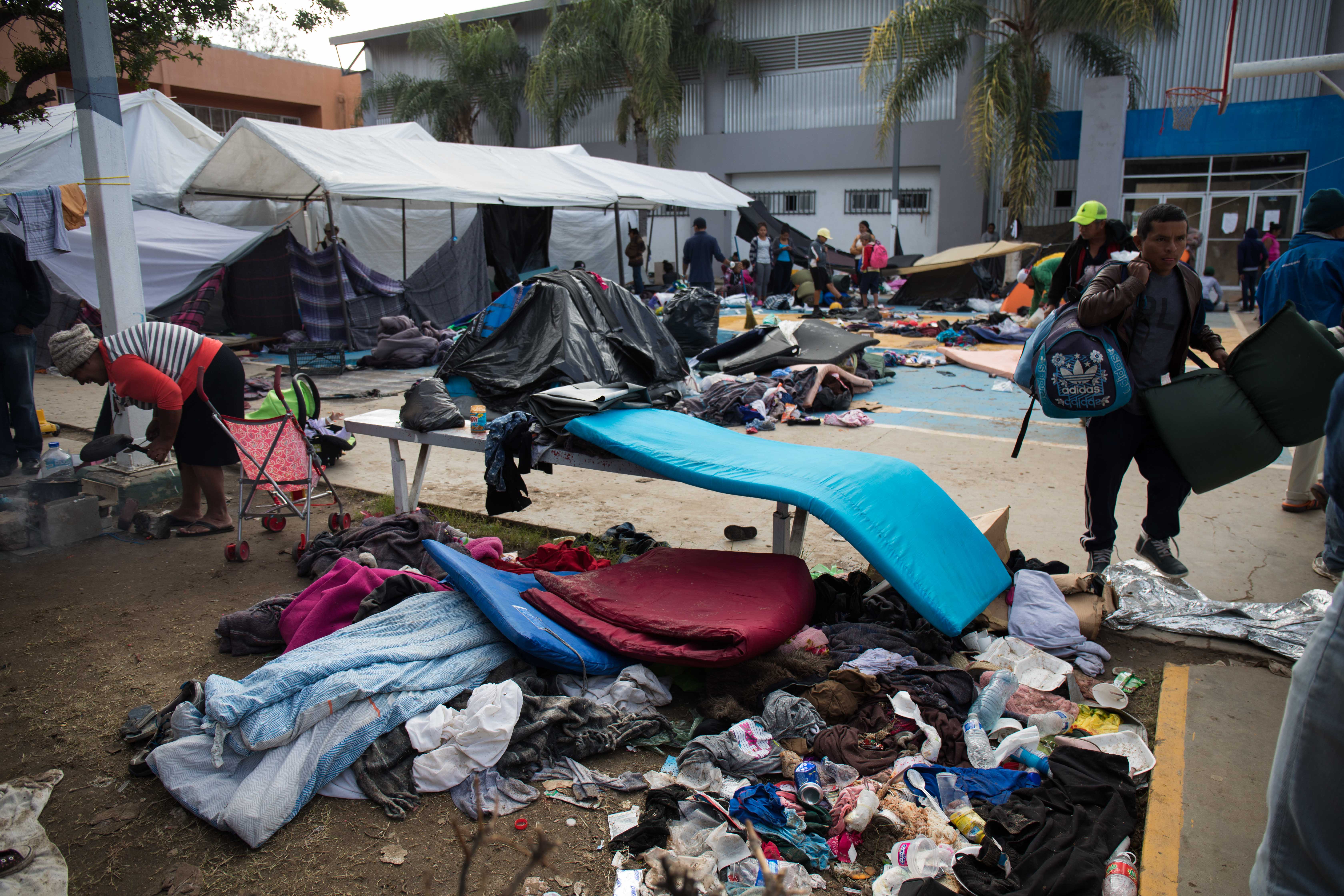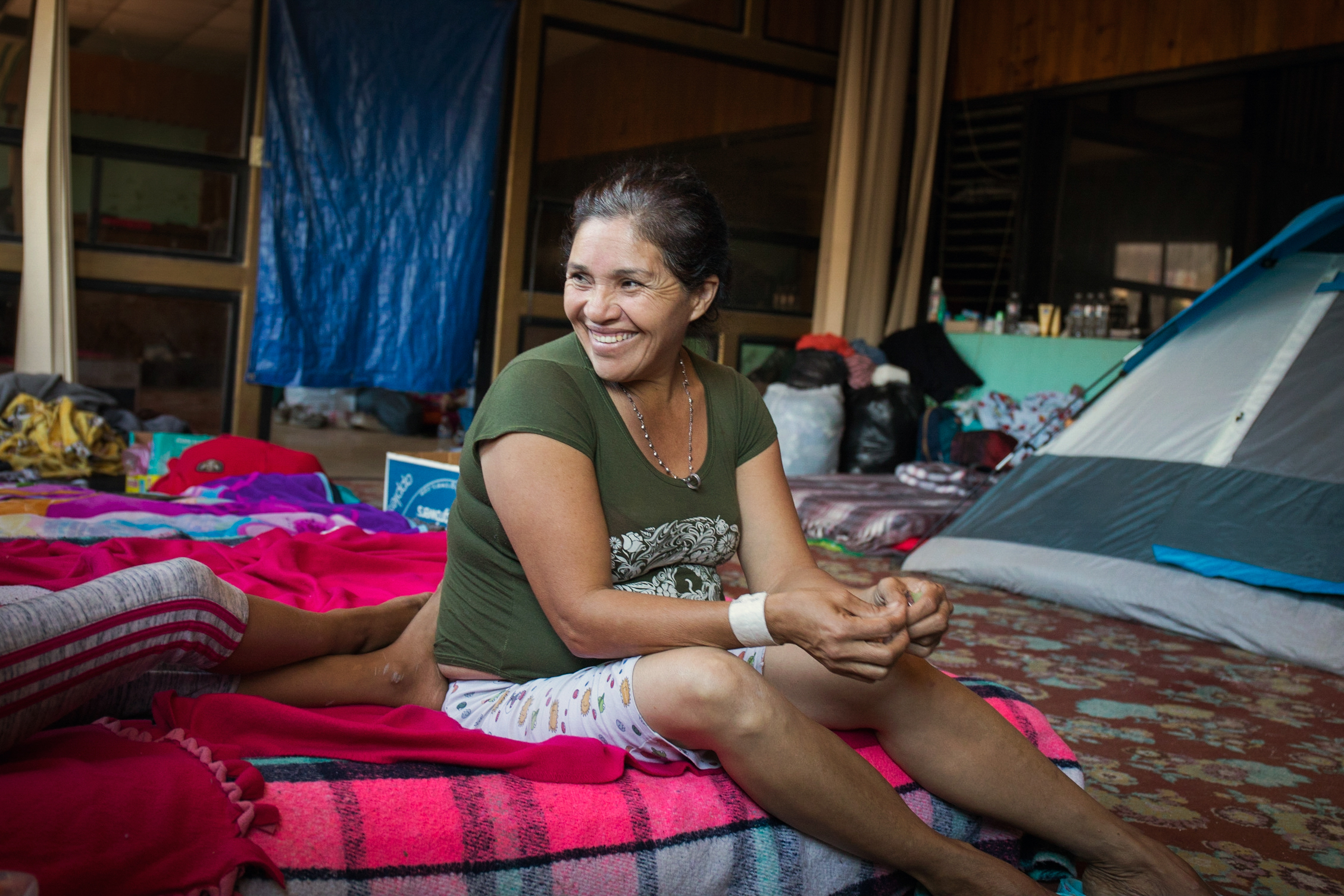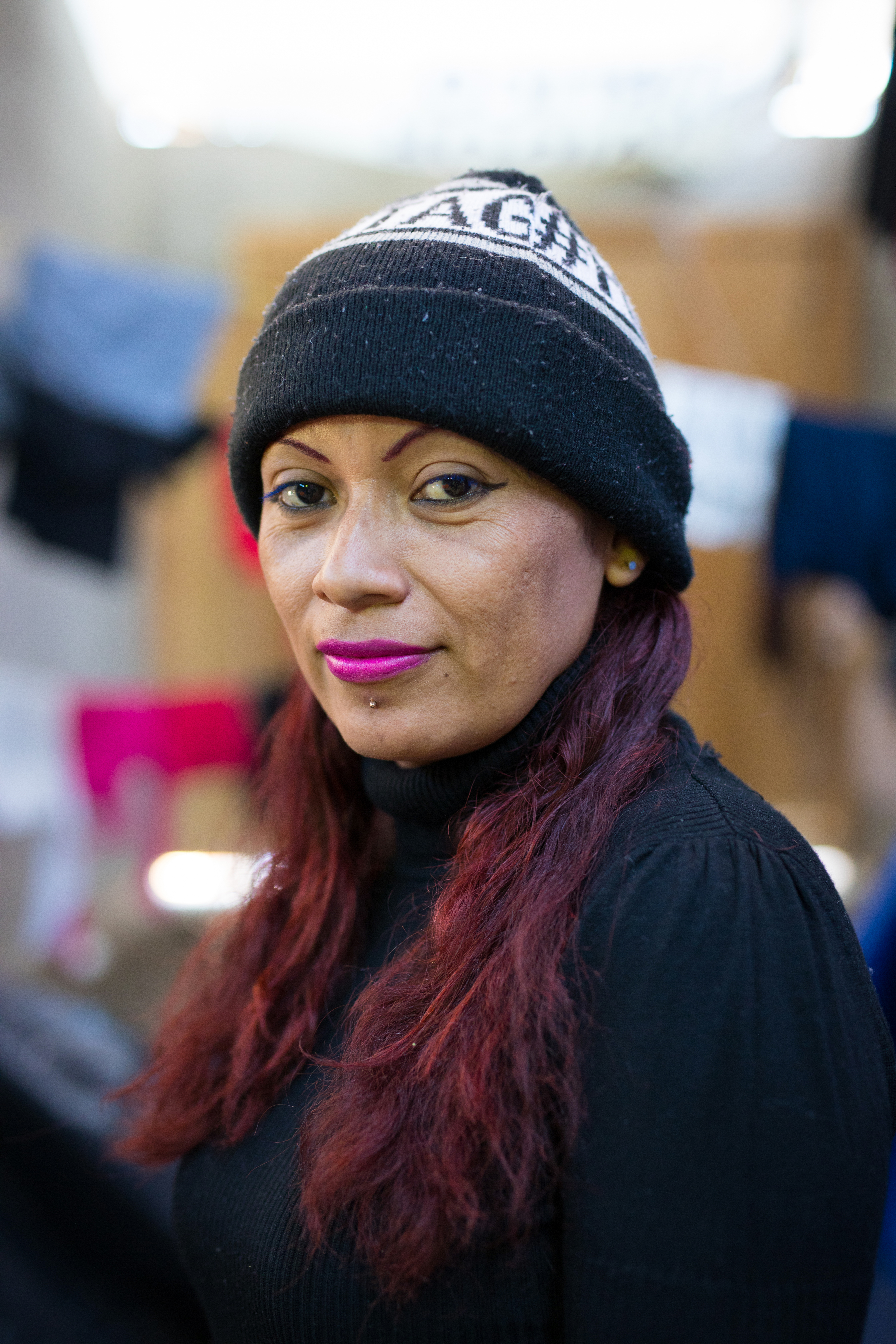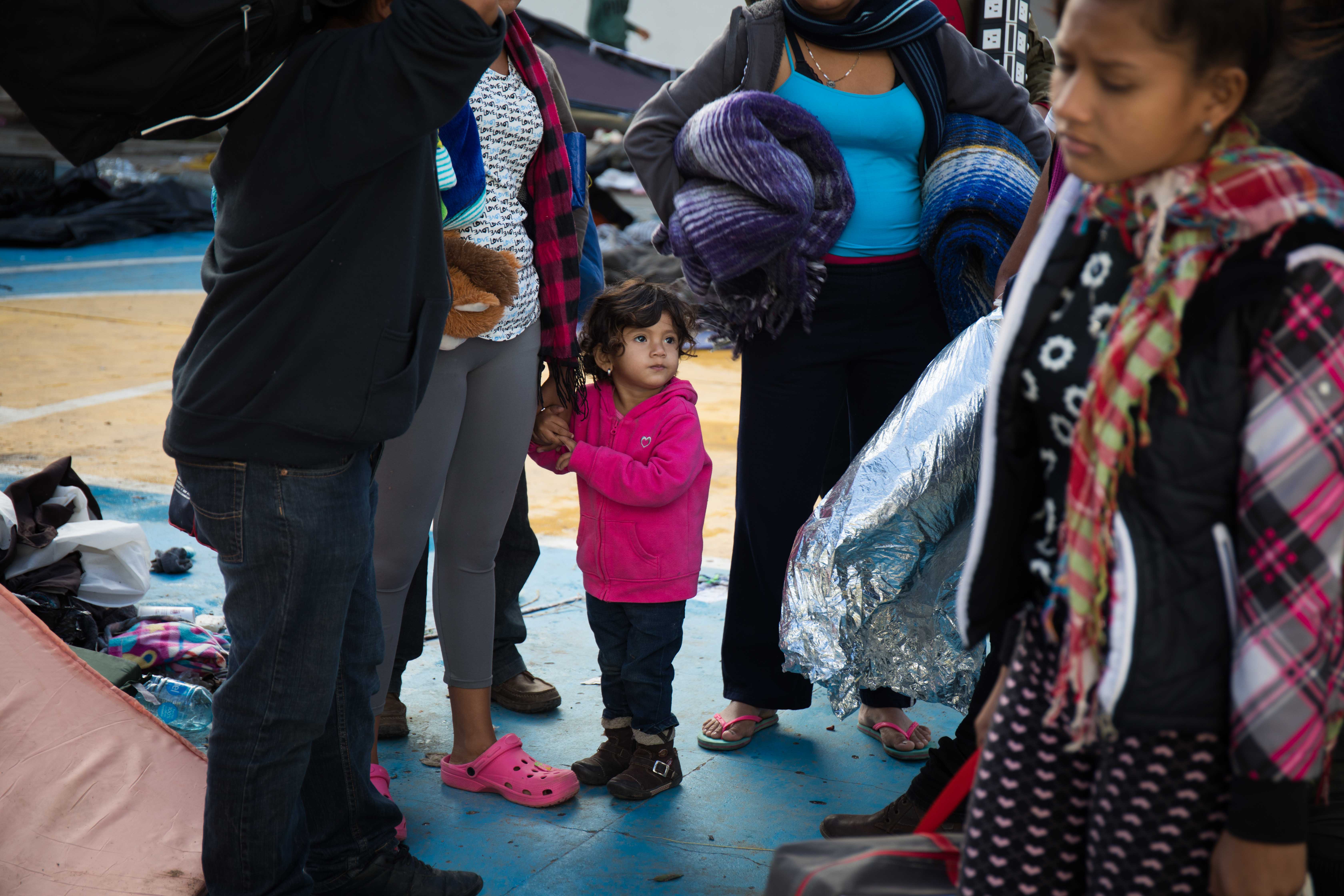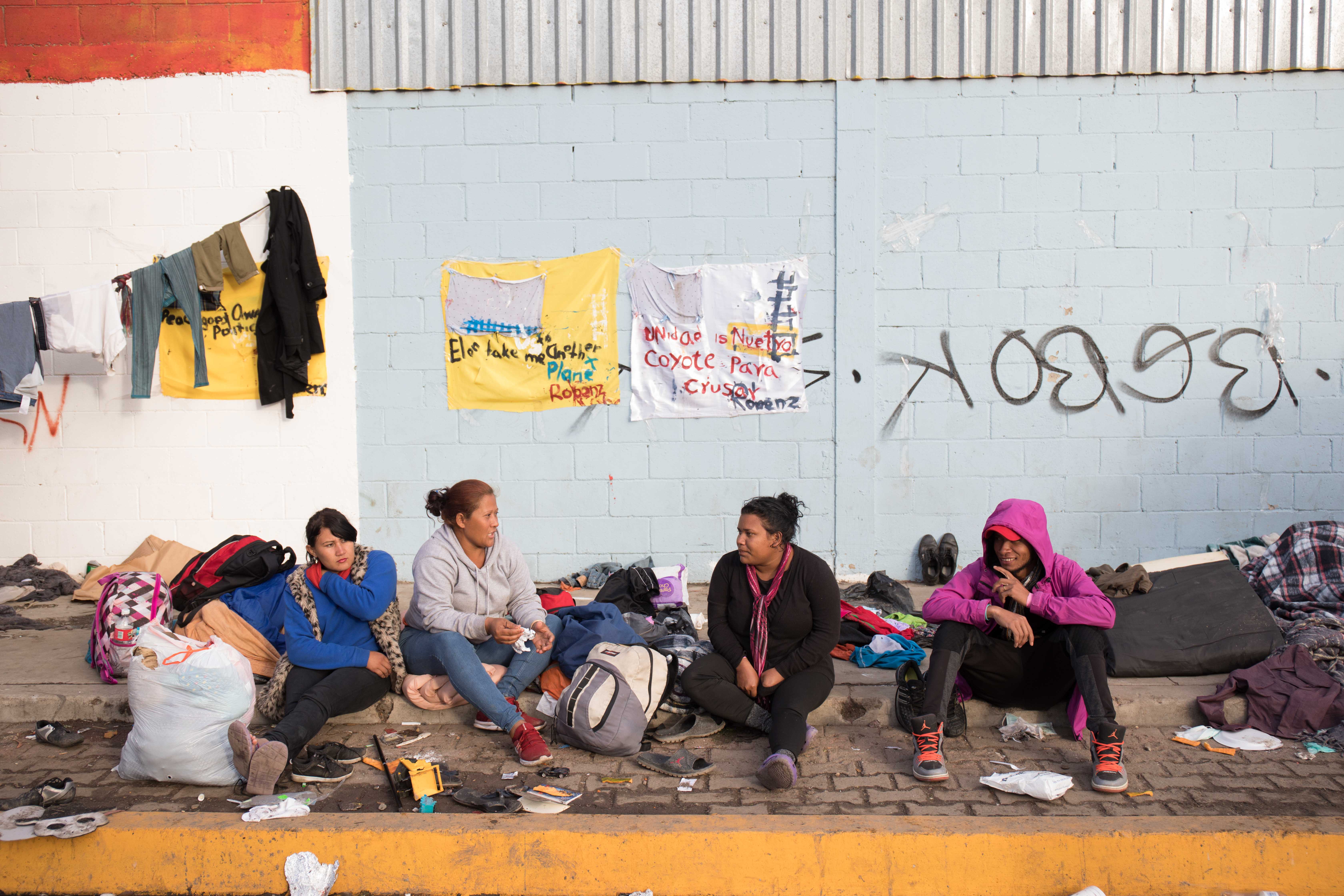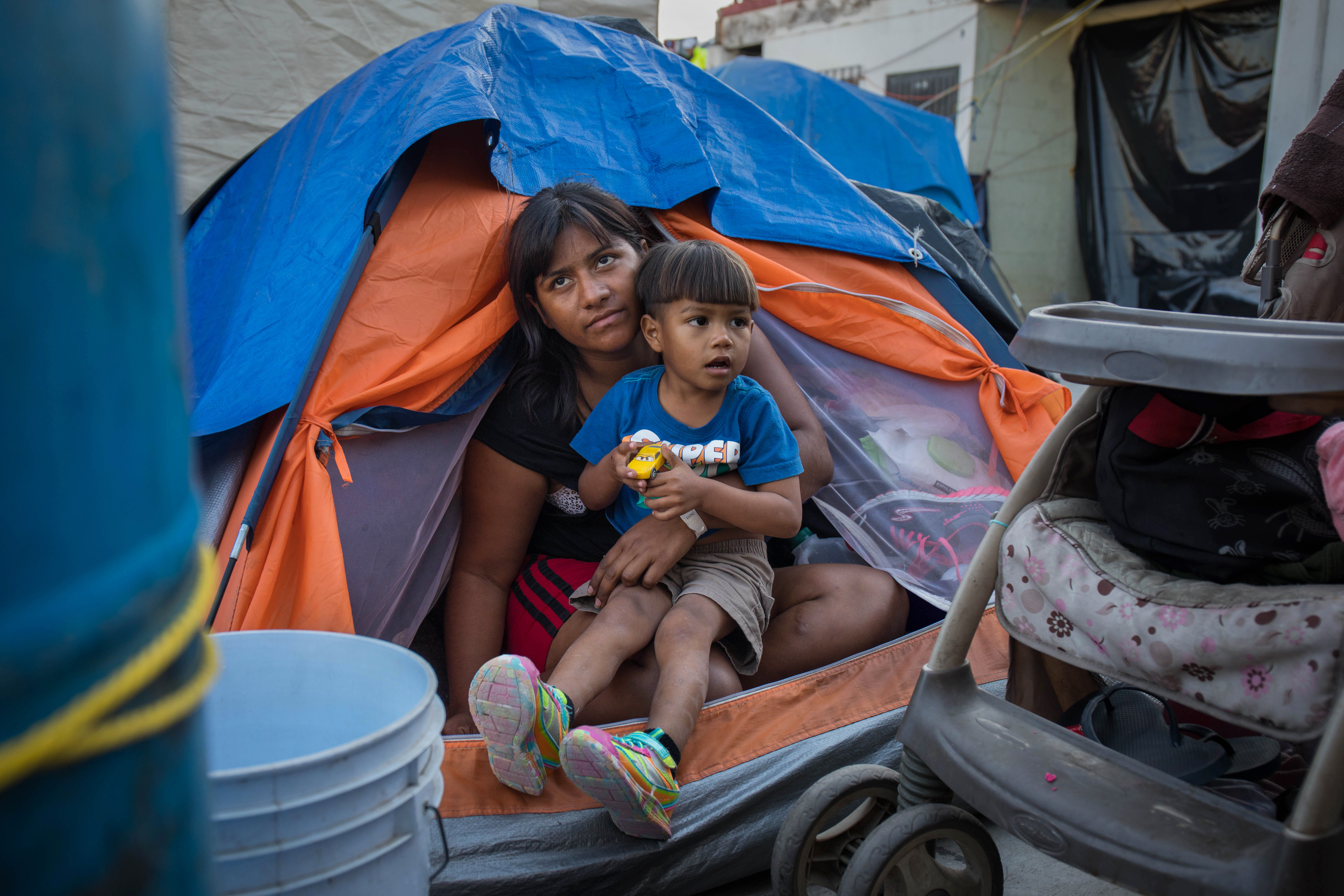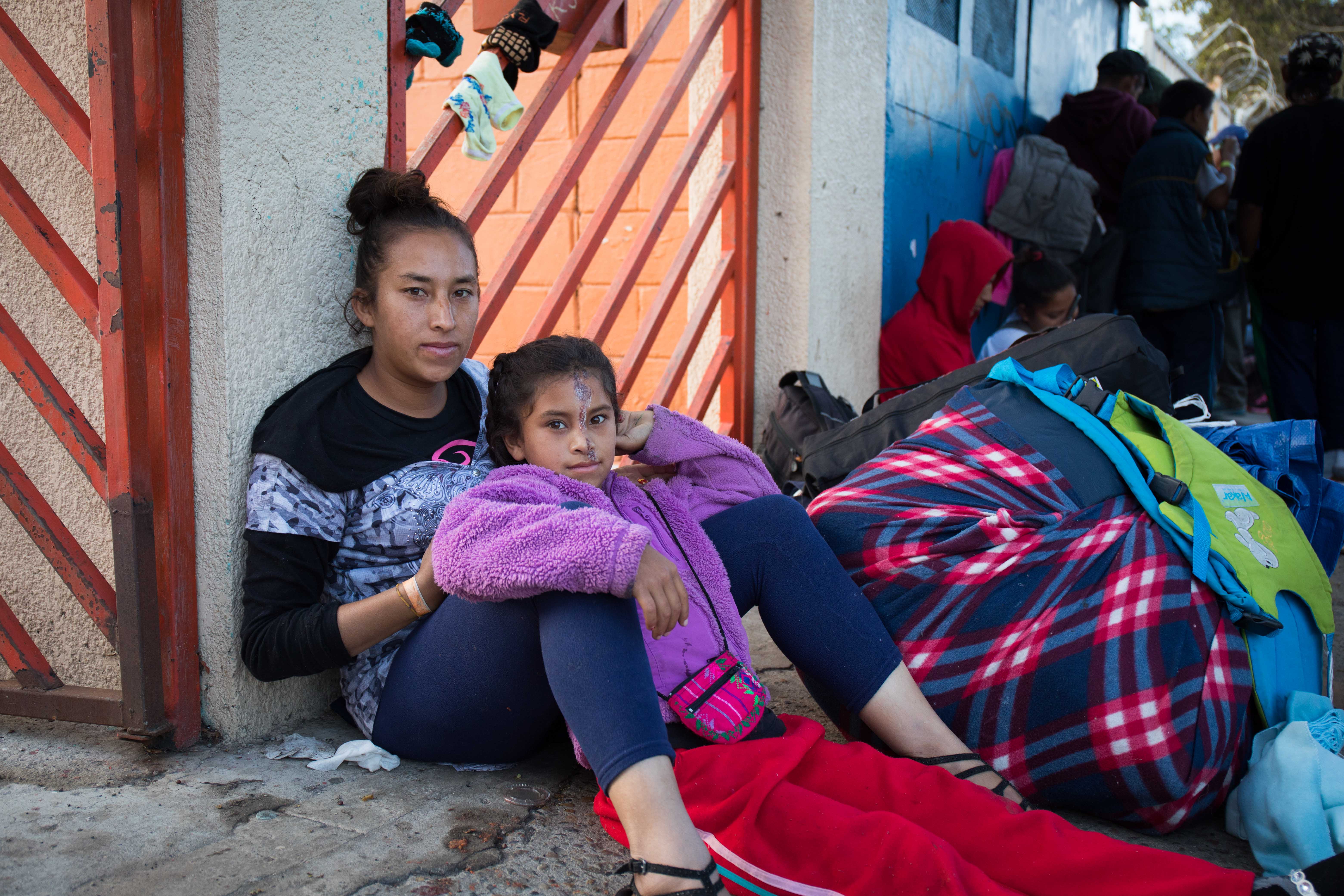
Photographer Rae Ceretto and I arrived at the migrant shelter in Tijuana just a few hours after torrential rain flooded the entire camp. Friends with more experience in these sorts of situations had told me what to expect at refugee settlements, but the scene we encountered still managed to catch me off guard. It was the day of the 70th anniversary of the Universal Declaration of Human Rights and over 5,000 Central American migrants were huddled together in a shelter that was reasonably able to fit about half that many.
The air was damp, food was scarce, and many people had the flu from being exposed to days of rain. Most of the shelter inhabitants I saw were women and children. Some small children wore the Core Principles of the Human Rights of the Child tied around their wrists, in case they got separated from their families.
We met a man named Santos who — despite the circumstances — was filled with so much genuine optimism that it moved us. He said he made a promise to God and God was protecting him because of that promise. In 2017, he tried to break up a fight in his neighborhood and the gangs slit his throat. There’s a thick scar across his jugular. He walked barefoot for a month with the caravan, with only 500 pesos (roughly $25) in his pocket, to arrive at the shelter. When we asked him what he had promised to God, he said that that was between him and god (fair enough). We sat outside his tent and listened to him share stories from his life, with tears rolling down his face.
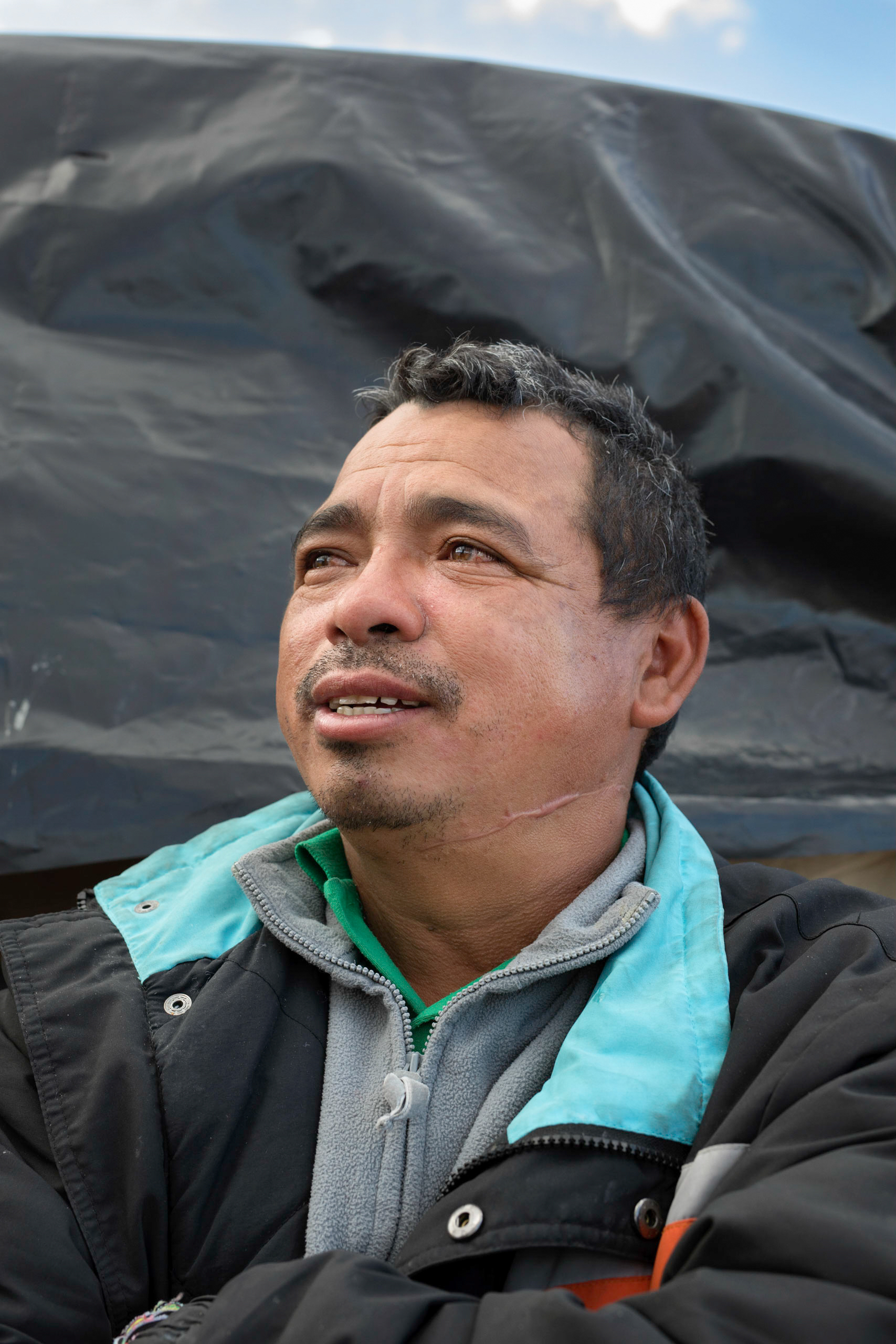
As a journalist documenting the migrant caravan’s journey, it’s astounding to see how little coverage there is on why the caravan started, who the Central American migrants are, and how US intervention has contributed to the political situation in Guatemala, El Salvador, and, especially, Honduras, for decades. The majority of the people in the migrant caravan are from Honduras, where the first social media page rallying people to start a caravan to the US began.
“I saw on facebook that there was a group of people leaving San Pedro Sula to the US,” said Francisco, a Honduran migrant we spoke with in Tijuana, who’s been volunteering to help others process their asylum applications. “I decided to join. We have no work and no food. It’s dangerous in the streets. At first there were only a few people but it just kept growing and growing.”
Some variation on this story became common as we talked to more migrants. Some were fleeing death threats from cartels; others were desperate to feed their children. Many heard of the caravan through a Whatsapp group. A month into their journey, the caravan started making the news — which contributed to the growing number of people who joined along the way. By the time they arrived at the US/Mexico border, the group contained 7,000 migrants.
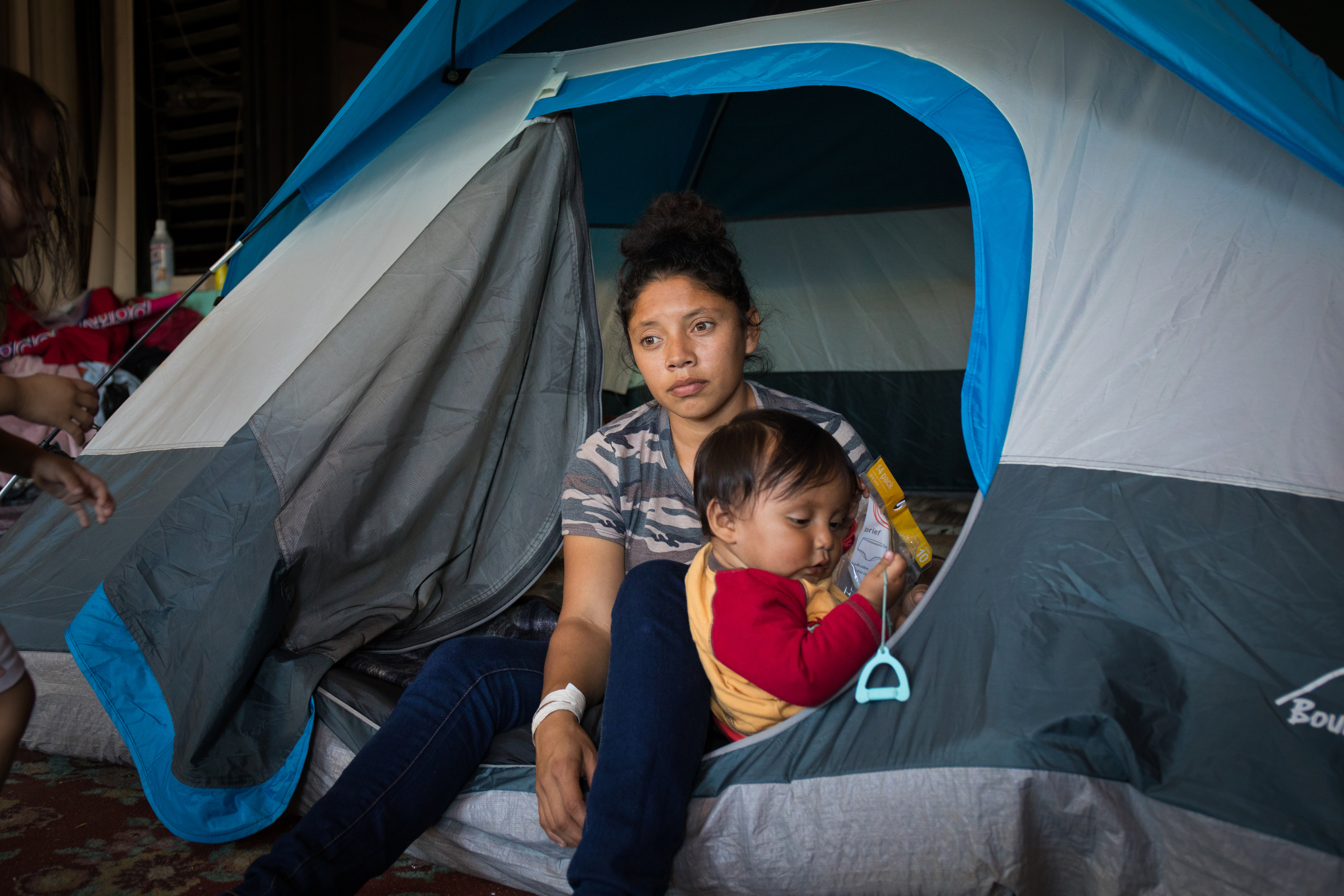
Honduras, the impoverished Central American country of 8.5 million people, suffers some of the worst rates of violence in the world and serves as a conduit for much of the cocaine that enters the United States. In Honduras, as well as in El Salvador, police and politicians are entangled with drug-trafficking gangs, which is not an uncommon dynamic in Latin America. What is also commonplace in the region is the United States’ sponsorship of generations of right-leaning politicians, who push forward agendas that lead to poverty and, therefore, more violence. To ignore that, with people uprooted by this violence knocking on our doors, is to be willfully blind.
A little historical perspective goes a long way toward and helping us realize that people fleeing persecution and risk of death in their countries are mere victims of institutionalized violence. No one walks barefoot for a month if they have a better option.
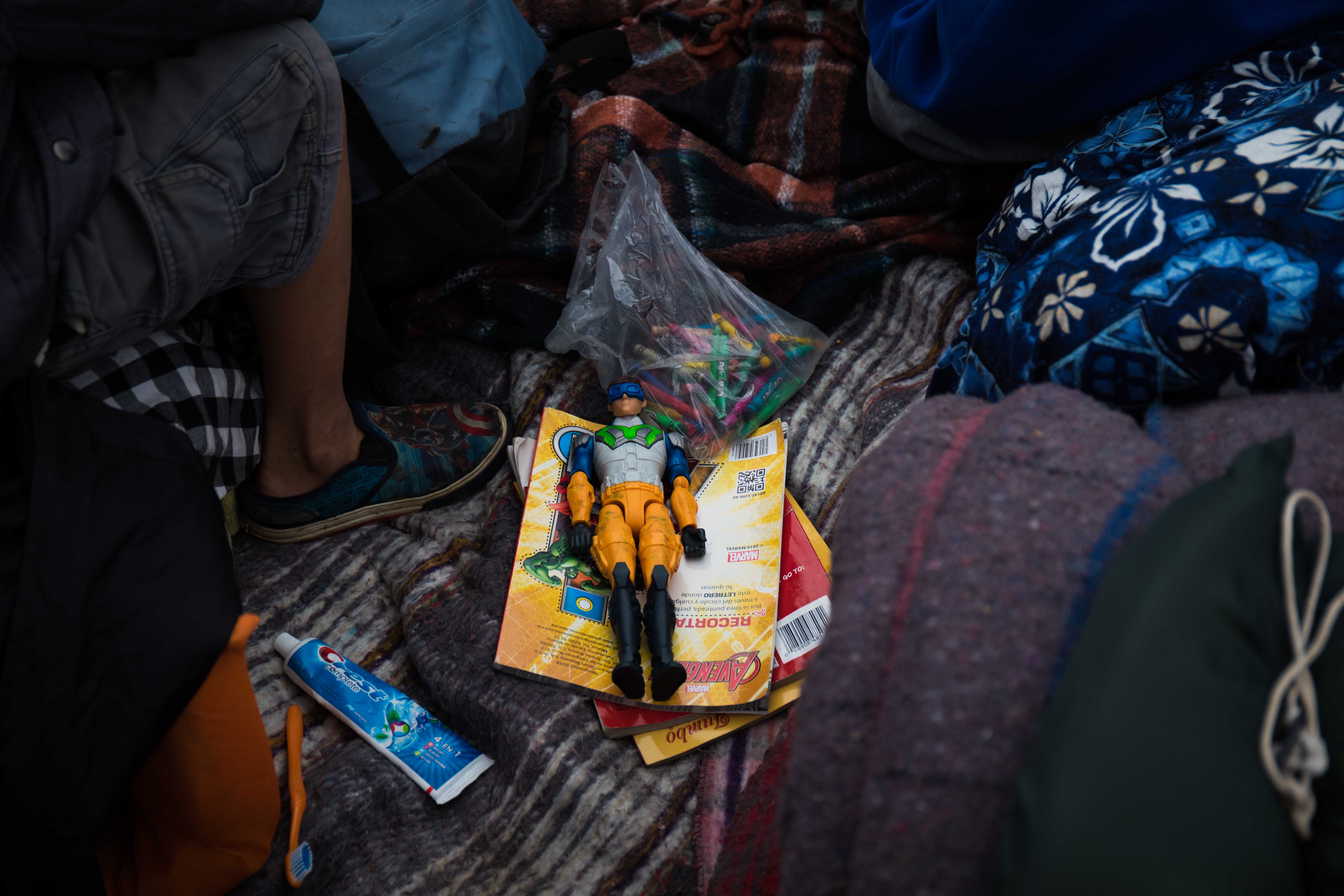
According to international law, seeking asylum is a human right and anyone subject to violence and persecution in their home countries has the right to fall upon the mercy of another nation. The Trump administration has consistently condemned the migrant caravan, warning of criminals pouring over the border to threaten American citizens and suggesting that undocumented immigrants will cause economic dislocation and job loss. But mass migration is simply a symptom of a crisis, not the cause.
The arrival of the migrant caravan in Tijuana quickly raised numerous human rights concerns. While all migrants face precarious conditions in the new migrant settlements in addition to an uncertain future, women face additional challenges, especially regarding safety, opportunity, and vulnerability. The distribution of supplies from NGO’s was uneven, with some items being stolen and sold by migrants themselves. Some people lost the little they had to the heavy rains. After being forced to relocate to a new shelter 25km away from the border, they also began to lose hope.
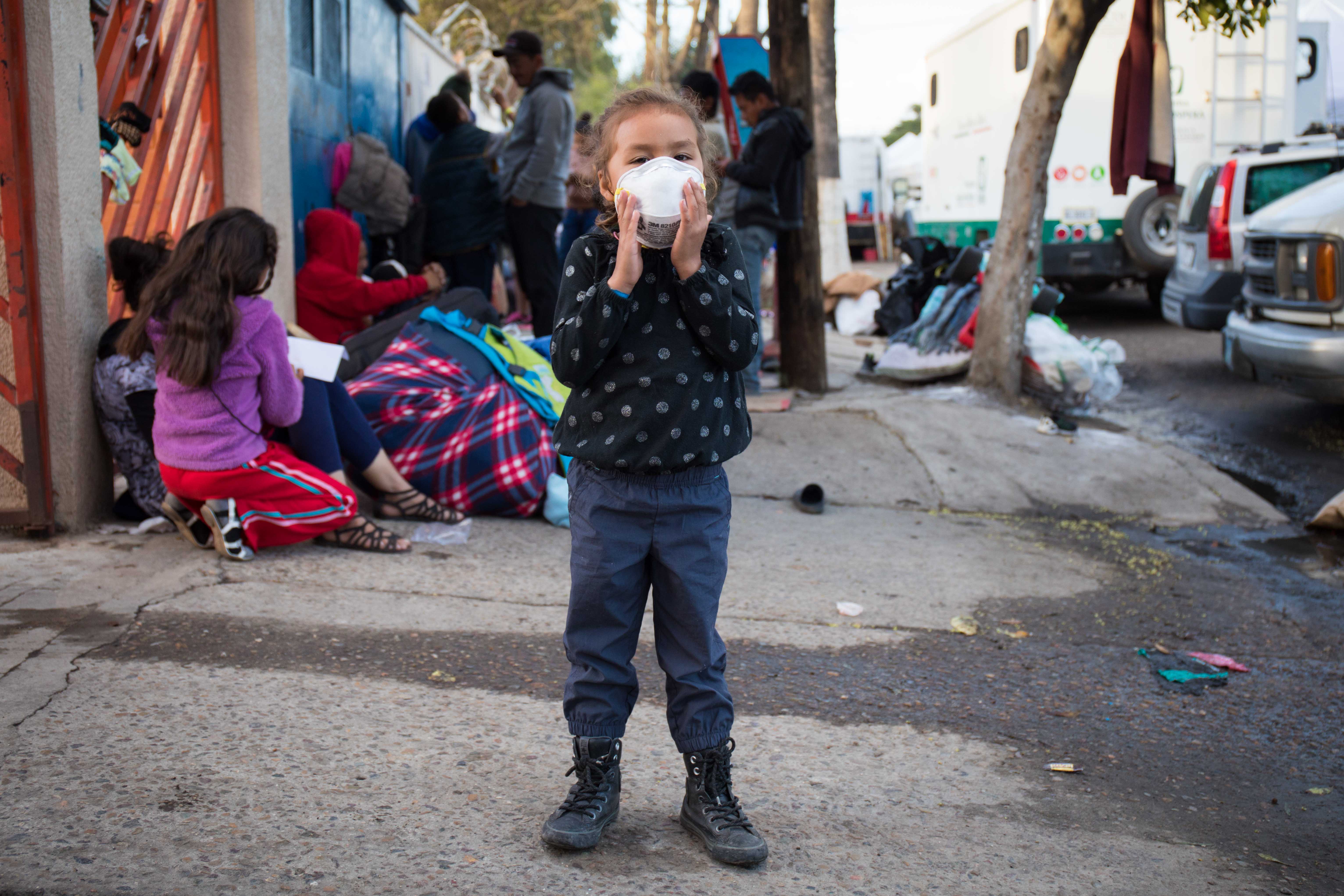
One morning, I held a woman while she cried atop a pile of wet blankets. I wanted to tell her, ”todo va estar bien,” but I couldn’t. I didn’t know if it was true. So I kept those words to myself. The next day I saw her running around tending to her family. There is a sense of resilience among these refugees that is hard to fathom.
In the shelters, I met women and girls as young as 15 who had walked with their babies through some of the most dangerous terrain in Central America — all for the hope of a better life. To stereotype them as criminals would be willfully ignorant of any first-hand reportage. What I saw, with my own eyes, were people in need of help.
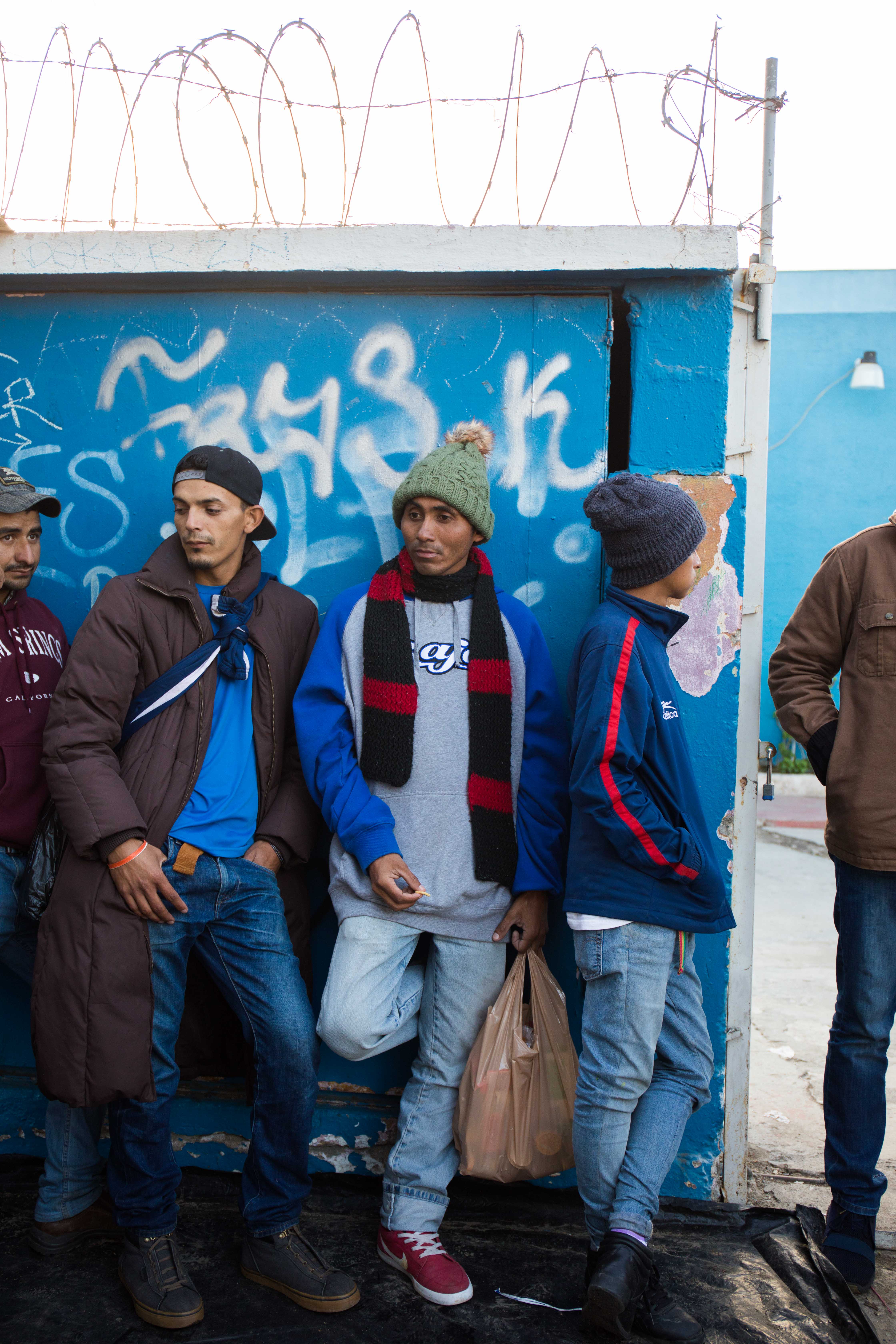
The future of the migrant caravan is uncertain. Desperation is mounting. Shelters are overwhelmed. Violence looms. After a judgment yesterday, asylum seekers will have to wait in Mexico for rulings on their respective cases. Before that decision, I saw people willing to jump over the border fences and turn themselves, just to have a chance to plead in front of the courts. As a response, they were tear gassed and shot with rubber bullets.
As Rae and I left Mexico, having done what we could but able to return to our normal lives with ease, I was struck by the randomness of privilege. Some people’s fate is decided based on where they were born. It’s as painfully simple as that.
